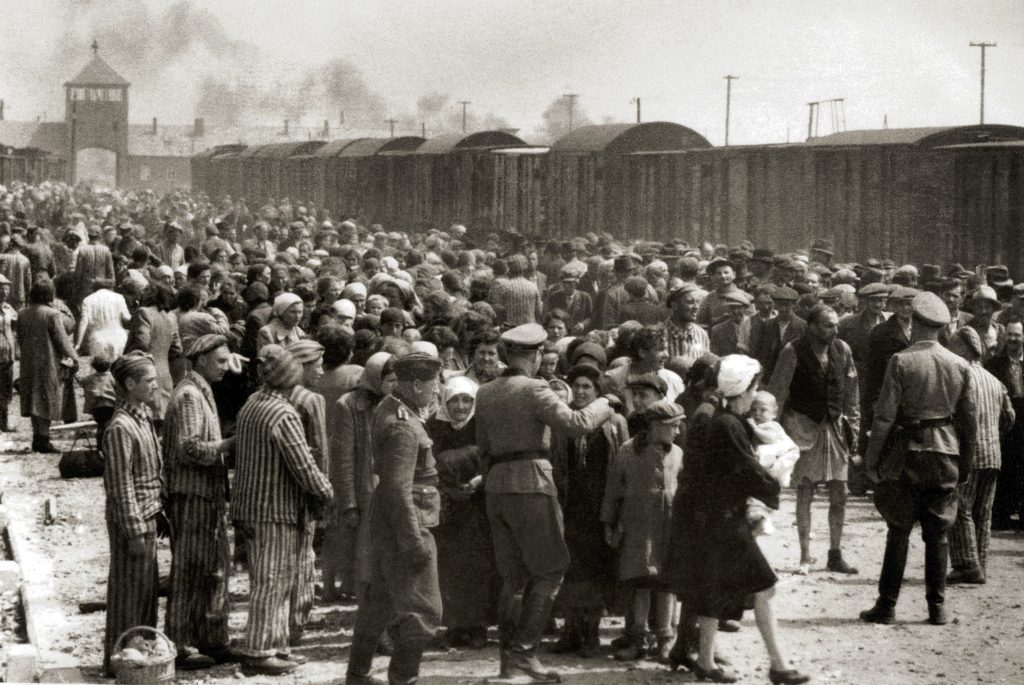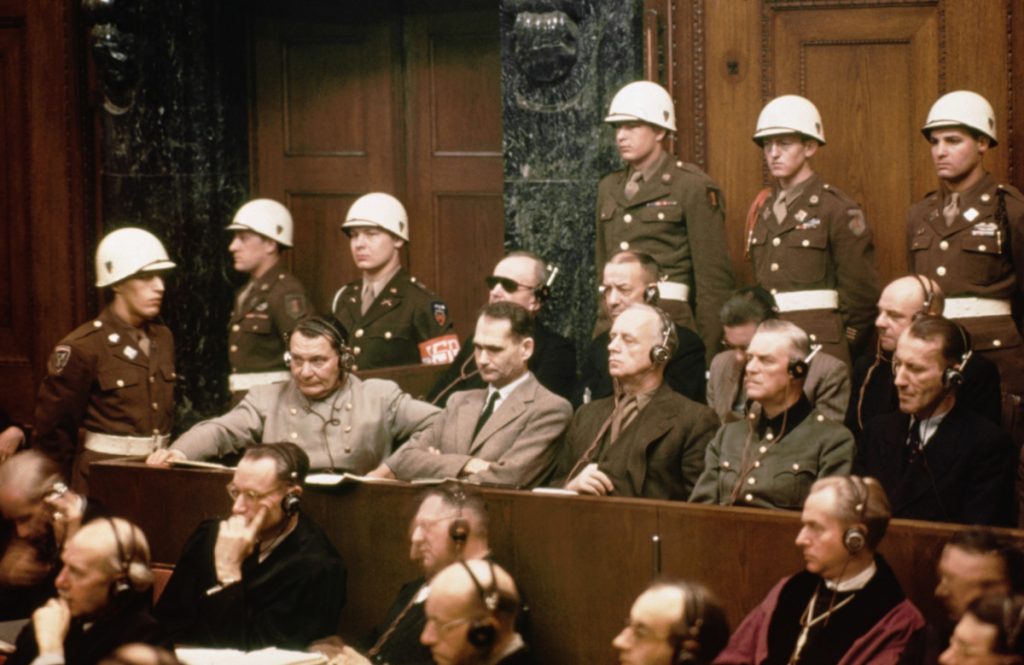This week, in one of the last Nazi trials in history, a 93-year-old concentration camp guard, identified as Bruno D., was charged with 5,230 counts of accessory to murder while serving as an SS guard at the Stutthof concentration camp from 1944 to 1945.
He faced the Hamburg Youth Court because he was 17 years old at the time. 50 co-plaintiffs from various countries testified against the former guard, some 75 years after the atrocities in Europe finally reached closure. He was convicted of thousands of counts of accessory to murder and given a two-year suspended prison sentenced for his role in aiding and abetting some of the 65,000 people murdered during the Holocaust in the Stutthof concentration camp. While only able to sit 2 hours a session, due to his age and frailty, is this more a symbolic, rather than true justice for the survivors given that most perpetrators of the Holocaust remained unnamed.
Bruno D.
During the landmark trial of another former Sobibor SS guard John Demjanjuk in April 2019, he asserted that Bruno D. knowingly supported the “insidious and cruel killing” at Stutthof concentration camp. Prisoners were subject to Zyklon B gas, starved, denied medical treatment and shot in the neck.
Another 95-year-old man was charged July 14TH with war crimes in a German district court last week also, with 14 other cases under investigation.
Why the sudden surge in investigating Nazi crimes?
Renewed vigour in addressing past misgivings through movements such as the Black Lives Matter and the dwindling few surviving perpetrators of Nazi Crimes have prompted the latest string of inquests on the basis there should be no statute of limitations for crimes against humanity. In the case of the Holocaust and other similar events in the recent past, the more time that has elapsed since the event, the more diligently we should pursue alleged perpetrators.

The past is easily forgotten or diminished in the rear-view mirror of history, but the most important thing is to educate the world about the capacity for seemingly normal people to become party to the most horrific evil.
75 years Later
It is inexcusable to think persons who committed genocidal acts of the magnitude of the Holocaust should somehow be absolved of these crimes simply because of the passage of time. Millions of voiceless victims: Jews, gypsies, homosexuals, Catholics, intellectuals, political dissidents, handicapped and the list goes on; deprived of everything that untried war criminals took from them and enjoyed for the rest of their lives. No more family, food, music, health, freedom, even life itself.
Such gross injustice is marred yet further in the Holocaust denial movement. Each time a crime goes unprosecuted, it serves to put historical distance between ourselves and the events of World War II. Such disregard contributes to the forgetting of the Holocaust, bringing us one step closer to the next. We would be abusing the memory of the sacrifices made by our parents and grandparents in dismissing this unfortunate episode in our history.
Alternative Perspective
Pre-war Eastern Europe was a politically and culturally complex place. Divisions and allegiances were formed as circumstances prescribed. Some were bystanders, some were recruited or forced into service. Bruno D. and other survivors, who were teenagers at the time, are unlikely to have been orchestrators. What level of blame can we really attribute to them?

It is important to keep in mind that after 75 years, it may be impossible to establish guilt or the degree of responsibility without significant doubt, nor how voluntary their actions were. Ordinary people were sent out to do terrible things they had no desire to do, such actions they would have refused were it not at the cost of their own lives or those of their families. Many alive today, or in the decades after the War were part of the Nazi infrastructure in some way, shape or form.
Legacy
We need to remember that the reign of the Nazis occurred less than one lifetime ago. Many in Germany at the time did not see the writing on the wall and died due to their denial. The World and humanity are unpredictable, and anything is possible at any time.
We must always be mindful of that and remain vigilant. If the trial of Bruno D. marks anything, it may signify one of the last opportunities to publicly prosecute crimes from that era, commemorate the victims and reaffirm everyone’s position toward it. And perhaps, just stave off the next genocide that bit longer.
In the immortal words of German pastor Martin Niemöller criticising the cowardice of Germany’s intellectual and clerical authorities during the Nazis’ rise to power and subsequent incremental purging group by group, his words echo a theme of personal responsibility that should ripple through time:
“First they came for the Communists
And I did not speak out
Because I was not a Communist
Then they came for the Socialists
And I did not speak out
Because I was not a Socialist
Then they came for the trade unionists
And I did not speak out
Because I was not a trade unionist
Then they came for the Jews
And I did not speak out
Because I was not a Jew
Then they came for me
And there was no one left
To speak out for me”


